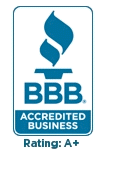Telephone customer service is tough. That’s one reason aside from reducing labor costs that having a contract with a live answering service is often a benefit for businesses; the operators for those live answering services are trained customer service agents who can handle tricky situations involving angry people. But whether your business uses telephone answering services or not, it can’t hurt to put a little thought into the best ways to respond to dissatisfied customers on the phone. Here are some guidelines regarding common complaints:
1. “You Didn’t Do What You Promised”
Promises are the basis of trust between a business and a customer, and if customers feel you haven’t fulfilled those promises, they’re likely to call asking to break their contracts or get refunds. There are a few things you should aim for in this situation. The first is consistency; you don’t want to seem rigid, but you should have policies that all your customer service agents understand and can clearly articulate. Second, you’ll want to gather information, perhaps implementing a survey as a prerequisite to canceling or getting a refund. And finally, you’ll want to make sure you’re conveying that you’re truly apologetic over any miscommunication and you don’t want it to happen again, to this person or any other customer.
2. “I’ve Been Waiting on the Line Forever!”
This is an extremely common complaint, and it doesn’t take long for customers to feel this way. One study involving more than 2,500 consumers discovered that nearly 60% of the participants found a minute of hold time to be too long. The best thing to do when you hear this complaint is to apologize and immediately move on to resolving the issue. Don’t blame it on management problems (understaffing, high call volume, etc.) because this just makes it look as though the problem is even more extensive.
3. “It’s Impossible to Reach Anyone!”
Overwhelmingly, customers like to reach a live person every time they call. Studies have shown that 69% of clients whose calls aren’t answered won’t call back at all, and 72% of clients won’t even leave a voicemail. And while some customers are embracing online channels, very few cite it as their preferred means of contact. So if you’re hearing this complaint often, apologize sincerely and work out a plan to get someone answering the phones.
4. “You Don’t Know What You’re Talking About”
This complaint occurs particularly often if your customer service operators are separated from your main business, either through poor internal communication or because you’re contracting with a company that isn’t taking the time to learn about your business. Better training is crucial here, but your operators can also demonstrate the knowledge they do have by repeating the issue back to the customer in different words.
5. “Your Competitor Is Willing to Do X”
The key here is to not get so competitive that you agree to something that’s bad for your business; customers will often use this line to manipulate you. If you think the customer is lying about the competitor offer, don’t call them out on it. Instead, politely respond that current policy doesn’t allow you to do that and then quickly offer a suggestion for what you can do to help.
Do you feel comfortable handling these types of customer complaints, or would you rather have a live answering service take care of it for you so you can focus on your business? Share your thoughts in the comments.



